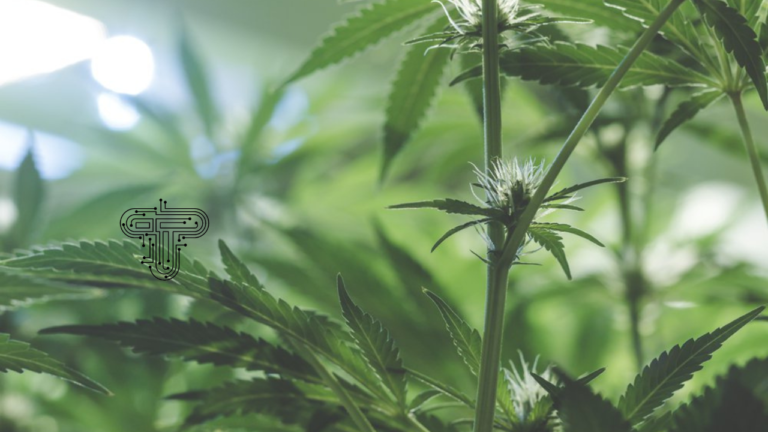HHC vs THC: Key Differences and Effects Explained

The cannabis world HHC VS THC is evolving rapidly, with new compounds and products regularly introduced to the market. Among the rising stars in this field are HHC (tetrahydrocannabinol) and THC (Tetrahydrocannabinol). As these two cannabinoids gain popularity, many are left wondering about the distinctions between them. Understanding the effects, legality, and potential benefits of HHC versus THC is crucial for anyone interested in cannabis products, whether for recreational or medicinal purposes. In this article, we’ll explore what HHC and THC are, how they differ, and the implications of these differences on your cannabis experience.
What is THC?
THC, or Tetrahydrocannabinol, is one of the most well-known cannabinoids found in the cannabis plant. It’s the compound responsible for the psychoactive effects typically associated with marijuana. THC binds to receptors in the brain, primarily the CB1 receptor, triggering feelings of euphoria, altered perception, relaxation, and sometimes anxiety or paranoia in specific individuals. This interaction is what gives THC its reputation for producing a “high.”
THC comes in several forms, including delta-9 THC, which is the most prevalent in cannabis plants, and delta-8 THC, which has recently gained attention for its milder psychoactive effects. While delta-9 THC remains federally illegal in many countries and states due to its psychoactive nature, delta-8 THC has found a legal gray area in certain regions, especially in the United States, where it is derived from hemp.
Besides recreational use, THC is valued for its medicinal properties. It has been found to help with conditions like chronic pain, nausea, insomnia, and even the side effects of chemotherapy. However, it’s important to remember that THC’s strong psychoactive properties can lead to unwanted side effects, especially in higher doses.
What is HHC?
HHC, or Hexahydrocannabinol, is a relatively newer cannabinoid gaining traction. It is a hydrogenated form of THC, meaning that it has hydrogen atoms added to its structure. This slight modification in the chemical makeup makes HHC more stable than THC, particularly in terms of shelf life and resistance to degradation caused by heat and UV light.
HHC occurs naturally in cannabis in trace amounts but is typically produced synthetically from hemp-derived cannabinoids. Its effects are said to be somewhat similar to THC, though reports indicate that HHC produces a less intense high. Users often describe HHC’s psychoactive effects as falling somewhere between delta-8 and delta-9 THC, making it appealing to those who want the benefits of THC without extreme psychoactivity.
Due to its hydrogenated structure, HHC may have longer-lasting effects, but more research is needed to understand its pharmacology and potential therapeutic benefits fully. There is limited scientific data on HHC, and much of what we know comes from anecdotal reports.
The Chemical Structure: HHC vs THC
The primary difference between HHC and THC lies in their chemical structure. As mentioned earlier, HHC is a hydrogenated form of THC. Hydrogenation is a process that involves adding hydrogen atoms to the compound, which alters its molecular structure.
This process of hydrogenation stabilizes HHC and makes it less susceptible to oxidation, heat, and UV light exposure. THC, on the other hand, can degrade over time when exposed to light and air, which converts it to CBN (Cannabinol), another cannabinoid with different effects. HHC’s stability could give it an advantage for manufacturers looking to create long-lasting products.
However, while the chemical structures of HHC and THC differ, they both still interact with the endocannabinoid system, particularly the CB1 and CB2 receptors, albeit with varying efficacy. The exact differences in how they bind to these receptors are still being researched, but the structural changes lead to slightly different effects and potency.
Psychoactive Effects: Which is Stronger?
One of the main factors consumers want to understand is how HHC compares to THC in terms of its psychoactive properties. THC, especially delta-9 THC, is known for its intense euphoric effects. It can alter perception, mood, and cognition, so it’s commonly used recreationally.
HHC’s psychoactive effects are reportedly less intense than delta-9 THC but more potent than delta-8 THC. Some users describe the HHC high as more balanced, with less risk of anxiety or paranoia, which THC can sometimes trigger. This makes HHC appealing to those who want a mild high without the potential overwhelming sensations THC can bring.
The intensity of the psychoactive effects can also vary depending on the individual’s tolerance, the dose consumed, and how the product is administered (e.g., smoking, edibles, or tinctures). More research is needed to fully understand how HHC’s psychoactivity compares to various forms of THC and other cannabinoids.
Legal Status: HHC vs THC
The legality of cannabinoids is a complex issue and varies by region. THC, especially delta-9 THC, is still classified as a Schedule I substance in many places, making it illegal on a federal level in the United States and in several other countries. However, some states and regions have legalized THC for medical and recreational use.
HHC exists in a more ambiguous legal space. Since it is typically derived from hemp, which became federally legal in the U.S. through the 2018 Farm Bill, HHC may be considered legal in some places where delta-9 THC is not. However, because it is a synthetic cannabinoid, regulatory agencies could choose to crack down on it as its popularity grows. Consumers need to stay informed about the laws in their specific regions before purchasing or consuming HHC products.
Delta-8 THC faces similar legal uncertainties, as it is also derived from hemp but has been restricted or banned in several U.S. states. Given the evolving legal landscape, consumers should be cautious and stay updated on regulatory changes regarding both HHC and THC.
Potential Therapeutic Benefits
Both HHC and THC are believed to have therapeutic benefits, though more research is needed, particularly on HHC. THC has been widely studied and is already used in medical treatments for various conditions. For instance, THC is used to alleviate chronic pain, reduce nausea (especially in cancer patients undergoing chemotherapy), stimulate appetite, and help with insomnia.
HHC, while less researched, shows potential due to its similarity to THC. Users report that it may help with pain relief, relaxation, and anxiety, though there is little scientific backing at this time. Given its stability and potentially milder psychoactive effects, HHC could be developed into a therapeutic option for patients who find THC’s psychoactivity too intense.
It’s important to note that, like all cannabinoids, the effects of HHC and THC can vary widely depending on the individual. Factors such as body weight, metabolism, tolerance, and the presence of other cannabinoids (like CBD) can influence how these compounds affect the body.
Side Effects: Comparing HHC and THC
When considering HHC versus THC, it’s essential to understand the possible side effects. THC’s side effects are well-documented and include dry mouth, red eyes, dizziness, increased heart rate, memory impairment, anxiety, and paranoia. These side effects are usually dose-dependent, meaning higher doses increase the likelihood of experiencing them.
HHC, being less researched, has fewer known side effects. However, anecdotal reports suggest that HHC’s side effects are similar to those of THC but may be milder. Users report less likelihood of experiencing anxiety or paranoia when consuming HHC, which could make it an appealing option for those sensitive to THC’s effects.
Both HHC and THC can impair cognitive and motor functions, so it’s crucial not to operate heavy machinery or drive while under the influence of either cannabinoid.
Read More
Conclusion: Choosing Between HHC and THC
As the cannabis market continues to evolve, consumers have more choices than ever. When deciding between HHC VS THC, understanding the differences in their chemical structures, effects, legal status, and potential benefits is essential.

